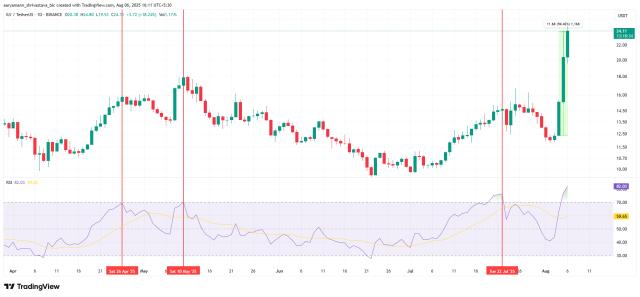Written by: Wanxiang Blockchain
On August 1, 2025, Hong Kong's "Stablecoin Regulation" officially came into effect, marking the world's first comprehensive regulatory framework for fiat stablecoins. The implementation of the regulation means that Hong Kong has officially established a licensing system for fiat stablecoin issuers, further improving the regulatory framework for virtual asset activities in the city, while ensuring financial stability and reserving space for orderly financial innovation.
License Window Opens: First Batch Expected to Land in Early 2026
With the regulation coming into effect, the Hong Kong Monetary Authority (hereinafter referred to as the "HKMA") simultaneously launched the first round of stablecoin issuer license applications, with the open period extending to September 30, and a 6-month transition period set for handling compliance transitions for institutions conducting stablecoin issuance business in Hong Kong.
The HKMA encourages interested institutions to actively communicate regulatory expectations before August 31; institutions that are well-prepared and wish to be considered early need to submit applications before September 30. According to the plan, the first batch of stablecoin issuer licenses is expected to be issued in early 2026.
It is worth noting that the HKMA has repeatedly "cooled down" the market, emphasizing that stablecoin development is not about speed, and warned against sacrificing risk prevention for the sake of speed, calling on the market to maintain rational expectations. This approach is also reflected in the design of admission standards.
Threshold Establishment: Avoiding Explosive Growth
The HKMA adopts a highly cautious principle in issuing licenses, setting high thresholds. HKMA Chief Executive Eddie Yue has previously made it clear that only a few licenses are expected to be issued initially. Even institutions that have entered the sandbox do not necessarily mean they will pass the review, and entering the "sandbox" is not a prerequisite for future license applications. All applications will be subject to strict individual assessments based on material quality. The regulatory technical briefing on July 29 further clarified that compliance, specificity, and sustainability are the core requirements for licensing.
According to the regulatory requirements jointly issued by the HKMA and the Financial Services and the Treasury Bureau, institutions intending to issue Hong Kong dollar-pegged stablecoins must not only obtain a statutory license but also meet traditional financial-level audit, reserve disclosure, transparency requirements, and anti-money laundering obligations.
Previously, Christopher Hui, Secretary for Financial Services and the Treasury, also pointed out that the regulatory principles are similar to traditional financial assets, and related issuers must comply with reserve asset management and redemption regulations, including properly segregating customer assets and completing redemption within one working day when stablecoin holders request it, to meet user needs.
HKMA Deputy Chief Executive Chen Weimin directly stated that the review focuses on the completeness of materials and the feasibility of concepts. For institutions with insufficient technical and risk control capabilities, a more practical approach is to collaborate with other stablecoin issuers and provide application scenarios, rather than pursuing the role of an issuer.
Focusing on Payment Value: Drawing a Line from Speculation
The value of stablecoins is in payment, not investment. In various public statements, the HKMA has always emphasized that the core attribute of stablecoins is a payment tool based on blockchain technology, and its value in integrating with the traditional financial system through regulation lies in its payment function, not becoming a target for market speculation.
Henry Cheng, Chairman of the Hong Kong Financial Development Council, clearly stated that stablecoins should focus on long-term payment infrastructure and deep changes in asset market digitization, rather than becoming a short-term speculative tool.
Chen Weimin also warned the public to be wary of conceptual bubbles and avoid market over-excitement, noting that even if institutions obtain licenses, short-term profitability remains uncertain, and calling on investors to remain calm and make independent judgments when interpreting market information.
Financial Secretary Paul Chan also pointed out in a signed article that the programmable nature of stablecoins provides possibilities for payment automation and financial service process restructuring, but its development should not be "technology chasing" or a "tool carnival," and must be closely tied to real economic needs.
Anchoring the Real Economy: From Cross-border Settlement to Asset Tokenization
With increased regulatory clarity, stablecoin applications are accelerating towards the real economy. The first batch of stablecoins will focus on cross-border trade settlement and Web3 scenario testing.
Christopher Hui noted in an interview that in "Belt and Road" infrastructure projects, stablecoins may become an important digital tool for addressing local currency fluctuations and enhancing regional economic resilience.
Paul Chan revealed that Hong Kong will continue to promote financial asset tokenization, planning to introduce token settlement mechanisms in areas such as green bonds, ETFs, and metal commodities, using stablecoins to build bridges between on-chain assets and transaction currencies.
Eddie Yue pointed out on August 4 that Hong Kong banks are experiencing rapid growth in digital asset business. After the relevant regulatory guidelines are introduced, more and more banks are exploring sales of digital asset-related products and tokenized assets, as well as digital asset custody services. He believes that Hong Kong's growth momentum in the digital asset field will continue, bringing new impetus to the city's wealth management business.








